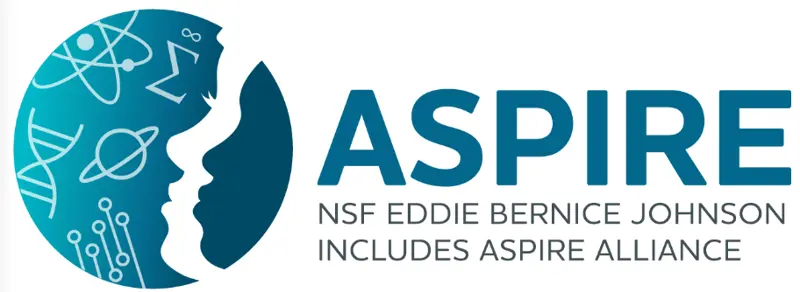
NSF INCLUDES Aspire Alliance
Summary
The Aspire Alliance works to expand the talent pool of STEM faculty nationwide by engaging with a growing network of partners to support systemic change in the STEM higher education system. Aspire Regional Collaboratives has developed geographically proximate partnerships among postsecondary institutions to support broad pathways toward STEM faculty positions at community colleges for cohorts of a wide range of graduate students. The widening scope of the Regional Collaboratives requires a reconsideration of the backbone support necessary to coordinate convenings, activity planning, research and dissemination efforts.
As a collective impact initiative, the ASPIRE Regional Collaboratives has established postsecondary partnerships across two- and four-year institutions, as well as national disciplinary organizations, to align activities toward its goals. Leads from each collaborative meet regularly to develop activities that support common goals, discuss theory-to-practice resources for planning guidance, share implementation strategies and challenges and define common metrics for outcome success.
Goals & OCCRL Efforts
OCCRL will work within a Regional Collaborative to increase the number and expand the talent pool of graduate students and qualified professionals who are pursuing a teaching career in STEM at community colleges. The office will help expand and strengthen the skills of future, early-career and current STEM faculty to teach the diverse student population. OCCRL will also facilitate biweekly meetings among Regional Collaborative leaders and collaborate with UW-CERSE to adapt evaluation activities and embed them into OCCRL and Regional Collaboratives. Project activities will include:
- Integrating all the organizational lessons learned in the current INCLUDES grant into a Regional Collaborative backbone
- Assisting Regional Collaboratives in sustaining their local activities past the end of the grant to maintain long-term trajectories toward scaled reform
- Working with the National Institute for Staff and Organizational Development (NISOD) to pilot the institutional self-assessment tool for supporting the hiring and success of a wide range of faculty in STEM education, with additional attention to career and technical education
- Developing a sustainable income model to continue backbone work past the supplement year by extending existing Aspire Regional Collaborative activities
Regional Change
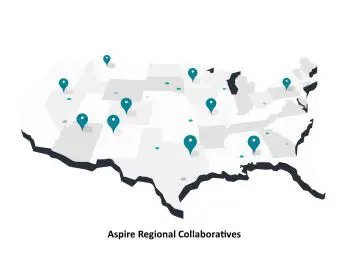 Regional Collaboratives (RCs) are networks of geographically proximate 2- and 4-year institutions partnering to build broad pathways for a wide range of graduate students to explore and secure positions as STEM faculty. Our model has grown from three regional collaboratives to nine, expanding our reach and impact across the United States. Partnering institutions work together to develop and implement programs and experiences toward two primary goals:
Regional Collaboratives (RCs) are networks of geographically proximate 2- and 4-year institutions partnering to build broad pathways for a wide range of graduate students to explore and secure positions as STEM faculty. Our model has grown from three regional collaboratives to nine, expanding our reach and impact across the United States. Partnering institutions work together to develop and implement programs and experiences toward two primary goals:
- Increasing the number and talent of the pool of graduate students and qualified professionals who are pursuing a teaching career in STEM at community colleges
- Expanding and strengthening the skills of future, early-career and current STEM faculty to teach the wide-ranging student population.
Leaders from all RCs meet regularly and are supported by a national backbone structure and national disciplinary organizations. Together they develop shared goals and metrics, share resources, collaborate on strategies for successful implementation of programming (e.g., mentored internship/practicum experiences, workshops and trainings, open house and informational meetings), coordinate evaluation activities and engage in joint communication efforts.
Southern California Regional Collaborative
California State Univ., Dominguez Hills
California State Univ., Fullerton
California State Univ., Los Angeles
California State Univ., Northridge
Cerritos College
Coastline Community College
College of the Canyons
East Los Angeles College
Foothill College
Golden West College
Los Angeles Pierce College
Mt. San Antonio College
Orange Coast College
Rio Hondo College
San Francisco State Univ.
Santa Monica College
Univ. of California - Los Angeles (lead)
Univ. of California - Riverside
Univ. of California - Santa Cruz
Univ. of California - Irvine
Iowa Regional Collaborative
Des Moines Area Community College
Eastern Iowa Community College District
Iowa State University (lead)
Kirkwood Community College
Marshalltown Community College
North Iowa Area Community College
University of Iowa
University of Northern Iowa
Texas Regional Collaboratives
West Texas Collaborative
El Paso Community College
Howard College
Midland College
Odessa College
University of Texas - El Paso (lead)
University of Texas - Permian Basin
North/East Texas Collaborative
Tarrant County Community College
Tyler Junior College
University of Texas - Arlington (lead)
University of Texas - Tyler
Central California Regional Collaborative
Bakersfield College (lead)
California State Univ., Fresno
California State Univ., Bakersfield
University of California - Merced
Florida Regional Collaborative
Florida State University (lead)
Tallahassee Community College
Southern Wisconsin Regional Collaborative
Univ. of Wisconsin - Platteville (UWP)
UWP - Baraboo Sauk County
UWP - Richland
Univ. of Wisconsin - Madison
Univ. of Wisconsin - Milwaukee (UWM)
UWM - Washington County
UWM - Waukesha
Univ. of Wisconsin - Whitewater (UWW), (lead)
UWW - Rock County
Central Massachusetts Regional Collaborative
Quinsigamond Community College
Worcester Polytechnic Institute, (lead)
Worcester State University
Southern Ohio Regional Collaborative
Clark State College
Strategic Ohio Council for Higher Education (SOCHE), (lead)
University of Dayton
Regional Change Leadership Team
 Craig Ogilvie, Regional Change Co-Lead
Craig Ogilvie, Regional Change Co-Lead
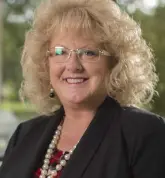 Gigi Delk, Regional Change Co-Lead
Gigi Delk, Regional Change Co-Lead
Publication
In the "Navigating the Dual Pandemics" article, Lorenzo Baber, Karla Velasco, Jeongsan Hwang and Gianina Baker examine past and current sociopolitical contexts and connect them to the growing calls for multi-institutional collaborations, concluding with a preview of the 2026 special issue of New Directions for Community Colleges, the collaborative efforts it will showcase and a call to action. Read the brief.
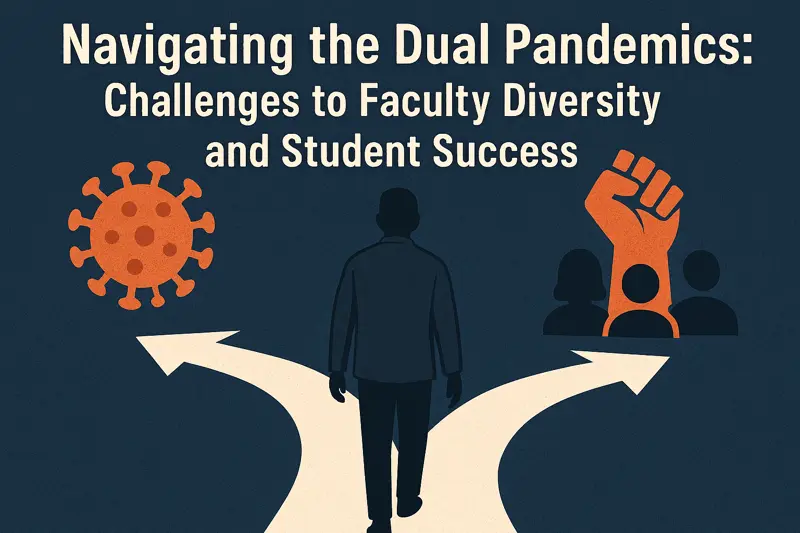
Democracy's College Podcast
Video: Institutional Support for Faculty Diversity and Inclusion in STEM Education: Recalibrating the Campus Self-Assessment Tool for Community Colleges
In this video, OCCRL Director Lorenzo Baber provides an overview of the development of the campus assessment tool for community colleges, which is designed to provide institutional support for expanding faculty within STEM fields at these institutions.
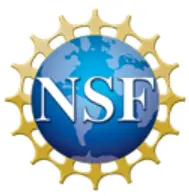 “This material is based upon work by the Eddie Bernice Johnson INCLUDES Aspire Alliance and related ADVANCE projects supported by the National Science Foundation under Grant No. (1834518, 1834522, 1834510, 1834513, 1834526, 1834521, 2121930, 2121950, 2204380). Any opinions, findings, and conclusions or recommendations expressed in this material are those of the authors and do not necessarily reflect the views of the National Science Foundation."
“This material is based upon work by the Eddie Bernice Johnson INCLUDES Aspire Alliance and related ADVANCE projects supported by the National Science Foundation under Grant No. (1834518, 1834522, 1834510, 1834513, 1834526, 1834521, 2121930, 2121950, 2204380). Any opinions, findings, and conclusions or recommendations expressed in this material are those of the authors and do not necessarily reflect the views of the National Science Foundation."
Learn more about Eddie Bernice Johnson.
Learn more about Eddie Bernice Johnson INCLUDES program at NSF.
Learn more about the ADVANCE program at NSF.